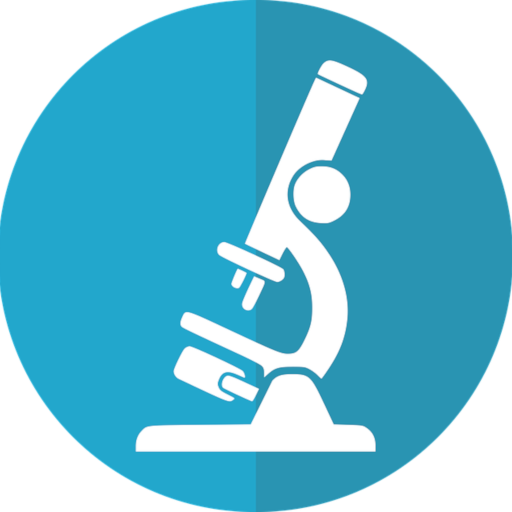Introduction
As a CLS/MLS, have you ever received a call from a doctor asking which test to order? You, as the technologist or supervisor, proceed to explain to the doctor why the particular test they want isn’t the best test and it would be better if they order another test instead. How do we stop wasteful testing and get the patient the proper diagnoses more quickly?
The answer is simple…Have a CLS/MLS present on the patient’s treatment team. As most people on these teams are physicians, PharmDs, or some other advanced practitioner, the CLS/MLS would need a comparable degree to be taken seriously. So what is the solution to fill this gap? A doctoral-level degree in Clinical Laboratory Science, which is the Doctorate of Clinical Laboratory Science (DCLS).
Description of Program
There are currently three (3) programs for Doctorate of Clinical Laboratory Science in the United States. They are:
Rutgers (formerly University of Medicine and Dentistry New Jersey)
Course work varies slightly for each program. However, the goals of each of these programs remain the same – To train laboratorians to act as consultants on an interdisciplinary health care team, to assist in selecting appropriate tests, and to conduct research on which testing is actually needed and valuable.
Curriculum
Curriculum typically consists of 80 course credits. Classes consist of advanced topics in all areas of the clinical laboratory, as well as statistics and data analysis. There is also one year of residency in which the student works directly with the healthcare team and conducts a research project.
Program requirements
All programs require the student to have a Bachelor’s degree from a NAACLS accredited university. The student must have a minimum overall GPA of 3.3 and a 3.2 GPA in science classes. The prospective student must be ASCP certified as a CLS generalist and be able to prove that they keep up their CMP certification. Lastly, the student must have at least two (2) years of CLS work experience in the clinical lab.
Difference Between DCLS and Traditional PhD
A traditional PhD generally involves the in-depth study of one particular topic and focuses more on research. A DCLS is an applied doctorate. This means that a person has all the same knowledge that a person with a PhD has, can understand complex research, and has the training to apply this knowledge to the real world.
Role for DCLS
The DCLS degree is still very new with the first candidates graduating within the last few years. As of right now, only a few hospitals are utilizing these types of professionals. So what kind of job opportunities are out there for DCLS graduates and why is this a needed vocation?
Types of Jobs
A DCLS will work as part of an interdisciplinary team of healthcare professionals. DCLS practitioners have multiple career options within the healthcare setting. DCLS can accompany the healthcare team on daily clinical rounds to ensure that proper tests are being ordered to accurately treat the patient. They can act as a consultant on direct case management requests to the laboratory. The DCLS, using informatics, can review test utilization of a laboratory and help to condense and streamline the lab test menu. Streamlining of laboratory tests also contributes to one of the final functions of a DCLS, which is to analyze the needs of the community to determine the type of testing most needed for a particular area.
Why it’s a Needed Profession
The DCLS is an important degree because it bridges the gap between the laboratory and the medical doctor. Very often, patients take longer to diagnose due to the physician’s lack of knowledge of a particular medical test. For example, a physician could have a patient with severe GI issues. They find that the patient has recently returned from a trip to India, so they’re suspecting an intestinal parasite and order a GI panel. What the doctor doesn’t realize is that this test only detects bacteria (Salmonella, Shigella, Vibrio, Plesiomonas, Campylobacter, E. coli 0157:H7). Everything comes back negative, so the doctor starts testing for other things like celiac disease, autoimmune disorders, blockages, etc. Meanwhile, the patient is getting sicker and the doctor is running up a big medical bill for the patient.
This may be an oversimplification, but hopefully, you get the idea. Had the doctor realized the original laboratory test ordered did not test for the disorder they were looking for, diagnostic time could have been cut in half, money could have been saved, and the patient could have recovered more quickly.
Barriers for Success of DCLS
The DCLS is a new degree and not many facilities are using it yet. What are some of the barriers for the success of this prefession?
Administration Buy-In
With any new position, the hospital administration has to be behind it in order for it to succeed. Administrators need to understand the value and importance of a position, such as value-added to the organization and money saved in the long run. Before buy-in can happen, many studies need to occur in organizations that have begun using the DCLS to see if this is feasible for all institutions. Preliminary studies look good for the DCLS.
Financial Considerations
Because this is such a new position, insurance companies have no way to bill for services. Right now, what that means is that if a DCLS is utilized on a case, the hospital eats the cost of employing them. In order for this position to succeed, it’s vital that both hospitals and insurance companies recognize its value.
Lack of Knowledge about CLS Profession
Clinical Laboratory Scientists have always been the invisible heroes behind the scenes. Because of this, not many people know the profession exists or how important it is. This goes for the general public, as well as people who work in the hospital. The lack of knowledge regarding the tasks that clinical laboratory scientists perform will be another barrier that needs to be overcome before the DCLS becomes a standard part of the medical care team.
Shortage in the Field
There is a shortage in the medical laboratory field. The baby-boomer generation held the majority of filled CLS/MLS positions. Since the baby-boomer generation is now at or nearing retirement age, most hospital labs are now operating short-staffed. There are not enough new graduates to fill the vacated positions. Since part of the requirement for being a DCLS is being an ASCP certified MLS for at least 2 years, that means the pool to draw from is becoming smaller.
Will the DCLS Catch On?
Eventually, the DCLS will catch on. The field of clinical laboratory science is in the same spot that pharmacy and physical therapy were 15-20 years ago. Drawing parallels between clinical laboratory science and pharmacy/PT, it stands to reason that offering a doctorate in Clinical Laboratory Science will help further the field itself. The pharmacy and physical therapy professions were once viewed similarly to CLS. Once doctorates started to be offered in these fields, and pharmacy and PTs started filling in gaps for physicians, these positions and opportunities started to expand. The DCLS is poised to do the same thing.
Currently, the representatives of the lab on the patient’s medical team are the pathologists. However, there is a shortage of pathologists. They are overworked and simply do not have the time to sit in to consult for lab testing. The DCLS will help to fill these gaps and take some of this responsibility off of the pathologists’ plate. So will the DCLS catch on? It will be an uphill battle, but I believe the answer is yes.


Sara,
Great article! I am a DCLS student with Rutgers on rack to graduate in 2023. I have immensely enjoyed the program and I hope to gain employment as a DCLS. My employer has graciously decided to host me for my required year of clinical practice residency. I hope this goose lays some “golden eggs” for them and they hire me.
The DCLS has quite an uphill battle ahead, one that I am posed for. CLIA states that a person with a doctoral degree and relevant experience is qualified to be a high complexity lab director (HCLD). As you explained, there are research and advanced practice doctorals, and CLIA included both. It did not specify. The HCLD candidate must be board certified and none of the CMS recognized board certifying entities will recognize the DCLS. ASCP (heaven bless them) is developing a certification exam. Hopefully this will be recognized by the CMS for HCLD.
Maybe in 30 years the DCLS will achieve HCLD. The DCLS will be able to run the lab, consult, and delegate record minimal responsibilities compared to those that currently qualify as HCLD. The DCLS is the complete package of expertise with experience at the bench and beyond the bench. It’s all about patient care and being there for our partner physicians, clinicians, and the patient.
Biz Fisher MHA-HI, MLS(ASCP), PBT
Hi Biz,
Thank you so much for your first hand account on the DCLS program. I’m glad you are enjoying it. I’m hoping that the DCLS will make our field more visible and give other areas of the hospital a better idea of what we actually do. I can’t tell you how many times people have expressed shock when they find out that the medical laboratory field requires a degree. Once the DCLS achieves HCLD I think that will be helpful in bringing much needed recognition to the hidden heroes of the hospital.